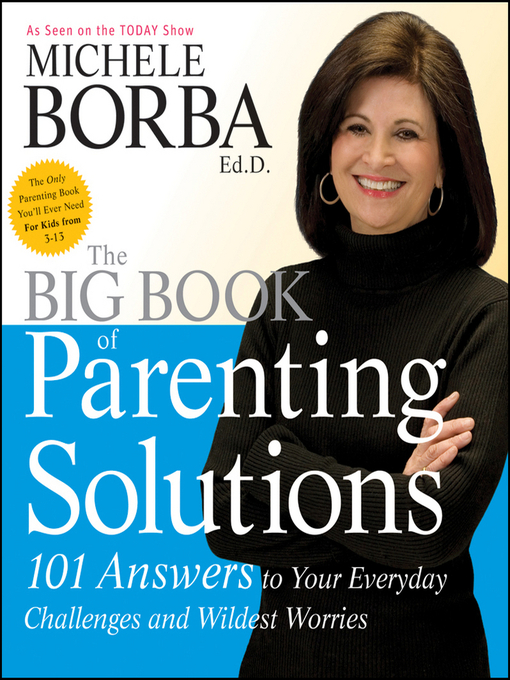Is the “Middle Kid Syndrome” really a problem? Not if we apply the research.
 Have more than two kids? Then I’m betting you’ve heard a few of these:
Have more than two kids? Then I’m betting you’ve heard a few of these:
“It’s like I’m stuck in the middle.”
“But I don’t want to do things like my sister.”
“I want my own stuff not these hand me downs.”
“My coach always asks why I can’t play like my brother.”
As soon as my third son was born I became very aware of the so-called “Middle Kid Syndrome.” It wasn’t hard…everyone warned me with this: “Watch out …you have a middle one now.” So I read all those birth order books and tuned into those experts warning us of the dangers of being “sandwiched in between.” I quickly learned to beware: middle kids get a bad rap. A very bad rap. And research even proves it.
A longitudinal study from Norway involving hundreds of men found that their elder sibling is smarter by an average of 3 points IQ which can be quite significant on those SATs.
But the lead has nothing to do with genetics!
It turns out if the first born dies, the second sib takes over that IQ lead! So the reason for that IQ boost? We talk to our oldest child more, which gives them a huge edge in language development.
Research also shows (Shhhhh!) that the first born is more favored by their parents and the middle kid realizes that favoritism.
Then there’s the problem of teachers and coaches comparing the middle child unfairly to their older sibling (“Your older brother read when he was three.” “Your sister could sing in tune.”).
What’s more, they have to endure that icky label: “Oh, you’re the ‘middle’ kid.”
And that isn’t enough this is the kid that gets far too many hand-me-downs. If we’re not careful this glorious child can get lost in the shuffle of their own families.
Hidden Benefits of Being “Stuck in the middle!”
It seems these middle children also learn valuable skills and perspective because of their unique position in the family. (We just may have to remind them that there are benefits, but there are a few).
Studies find these benefits to being stuck in the middle that may be overlooked:
- Middle kids are generally more creative and flexible because they are trying to be different from their elder and younger sibling.
- They are also often more relaxed, independent, diplomatic, resourceful, as well as more balanced and generous than their other siblings.
- They can make great negotiators and have great people skills if we let them forge their own way.
Keep in mind that the “middle child” in today’s family dynamics may not really be the middle kid…even if there are three children. Most studies on sibling dynamics show that the middle child definition applies only if there is a 2-3 year spread between the siblings.. and washes out after that. So if you have a first born, and then waited five years for the arrival of your second, the second child …because of that five year spread, may be more of a first born himself.. or youngest child. It all depends. And, as we all know, each child is different and responds based on the family dynamics.
7 Common “Middle Kid” Problems & Solutions
When the Today show asked me to report about the supposed “Middle Kid Syndrome,” I jumped at the opportunity. I reviewed all the research on middle children, but also asked a number of “ middle” moms and kids (including my own) for their take on the issue. And chime in they did!
Here are seven common problems that both researchers warn us of and middle kids complain about from being sandwiched in between and parenting solutions for each hot-button issue.
No. 1. Feel less favored
Not only do middle kids pick up on which sibling is the parental favorite, but researchers (after viewing videos of parent-child interaction) confirm it.
Sixty-five percent of mothers and 70 percent of dads exhibited a preference for one child–in most cases, the older one.
The middle kid pays the price. So, though we may think we treat our kids equally, research shows otherwise.
Be honest. Do your eyes light up with the same intensity for each of your children? That’s your test.
No. 2. Overlooked and skimped on attention
The first child is always the big deal. The last is “our baby.” The poor middle kid feels overlooked. As a result research says they can become rebellious or our little “people pleasers” to make up for what they feel is the missed attention.
Make a big deal over their trophy (even if the eldest has one, too).
Jump for joy that you get to go to the Christmas Pageant (again!)
Make special time so your middle kid doesn’t feel she’s overlooked. Each child deserves his own special “firsts.”
Keep that baby book open and ready to jot down those “firsts.”
No. 3. Hate to be compared
One of the biggest complaints of middle children is that they say they are always compared to their older sibling. “Your older brother could do that when he was three.” “Your sister liked piano.”
No fair! Tell Aunt Harriet to bite her tongue. Your cardinal parenting rule is: Never compare.
No. 4. Hide true feelings

Middle kids learn to not reveal their feelings. After all, the elder sibling is usually more verbal and gets our ears. So the second child often keeps things to himself. So….
Draw your middle one out.
Keep the communication open.
Ask how he’s feeling.
And make the older one listen to the middle child’s ideas.
No. 5. Tired of playing referee
This breed is most often to be the diplomat in the family. They smooth things over and tote the family peace pipe because they hate conflicts and anger. They become fabulous little negotiators and grow up to have wonderful people skills.
But right now this kid shouldn’t have to take on the role of United Nations in his own home.
Watch your middle child’s inclination to always smooth things over, and give in to the elder or younger siblings just to keep the peace. They can be taken advantage of and causes resentment as well as just not being fair.
No. 6. Always get the hand-me-downs!
Okay, every once in a while is fine, but watch those: “But the coat is perfectly fine.” Or: “Your sister never played with the doll. It’s brand new.”
No. 7. Forced to follow siblings footsteps
Let your middle kid march to his own drum and not have to hang onto the coat tails of an older sibling. Tap into your middle’s child true potential and emphasize each child’s unique strengths and true potential. These kids are usually more creative and individualistic. Draw out their natural nature.
Sure, how our kids turn out does have a lot to do with genetics and pre-disposed temperament. But it also has to do with how they are treated by us as well as the experiences they have with their siblings. Let’s tune in a little closer to this now are peacekeepers with great people skills who are not afraid to march to their own drum.
P.S. As a mom of a middle kid let me assure you, they turn out not only fine, but plain wonderful.
Dr. Michele Borba, Parenting Expert

I am an educational psychologist, parenting expert, TODAY show contributor and author of 22 books.
You can also refer to my daily blog, Dr. Borba’s Reality Check for ongoing parenting solutions and late-breaking news about child development.
Follow me on twitter @MicheleBorba
You can also find dozens more research-based and practical tips about middle kids, only kids, first born kids, twins, and 101 other challenges and worries in The Big Book of Parenting Solutions.

